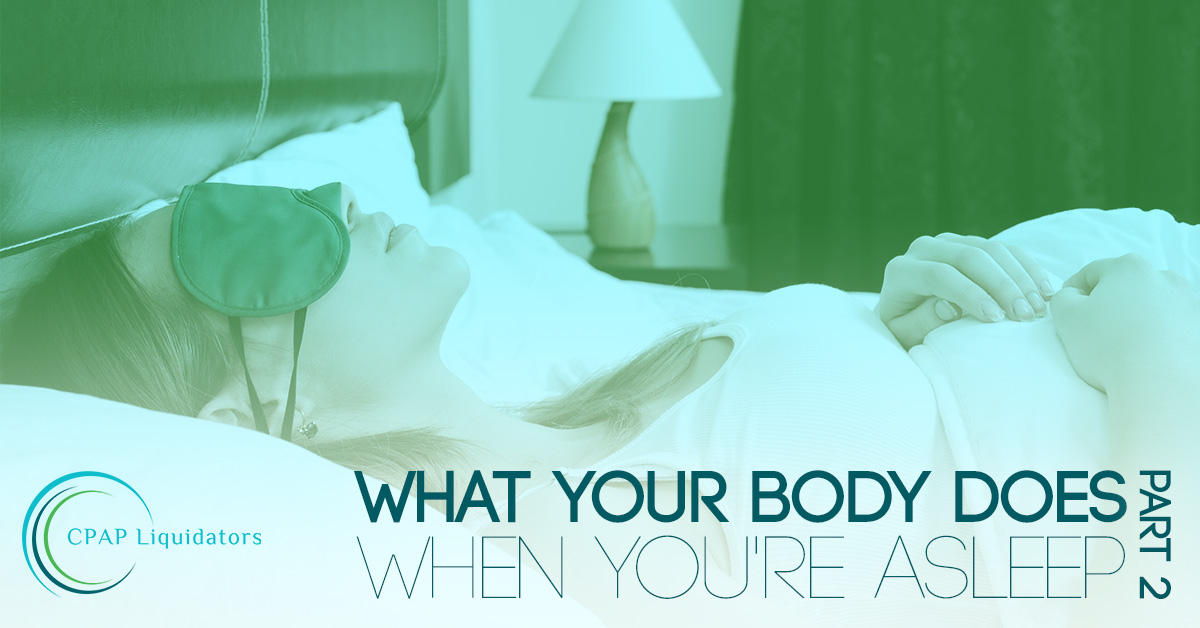Jul 24th 2017
What Your Body Does When You're Asleep Part 2

When you’re asleep, your body is hard at work.
After a long day, nothing feels better than a good night’s sleep. But did you know that your body is busy working while you catch those z’s? A lot of healing and restoration occurs when you’re asleep at night, but if you have sleep apnea, you could be missing out on those essential sleep properties. In our last blog, we touched on a few of the things going on in your body while you’re asleep. Here are a few more.
#4. Your muscles become paralyzed.
Have you ever wondered why your body stays fairly still while you are asleep, even when you’re dreaming about flying through the air, punching someone you hate in the face or dancing the Mambo with Al Gore? Muscle paralysis occurs exactly for that very reason, because physically acting out your dreams could be very dangerous. This paralysis is very temporary, but some people do experience it when upon falling asleep or waking up. Other people don’t experience any sort of paralysis when they sleep, and they’ll act out their dreams. This is called REM sleep behavior disorder.
#5. Your immune system is kicked into full gear.
When you’re asleep, your immune system produces disease-fighting white blood cells at an increased rate. That is one of the main reasons why your doctor always tells you to sleep more when you feel a cold coming on. It’s also one of the main reasons why people who have trouble getting to sleep at night have more trouble resisting infection.

#6. Your body produces and regulates hormones.
Your body produces many different hormones while you sleep. In addition to the release of melatonin, sleep causes corticosteroid and adrenaline levels to drop, which prompts the body to produce human growth hormones (HGH). HGH is a protein hormone. It it responsible for facilitating the use of amino acids — the building blocks of protein — and maintaining the repair of both bones and muscles. Additionally, testosterone, luteinizing hormone, follicle-stimulating hormone and fertility hormones are released during sleep as well.
#7. Your breathing slows.
Your throat muscles relax while you’re asleep, and that means that the throat actually starts to become more and more narrow every time you inhale. Snoring is caused when the throat becomes so narrow that the airway actually vibrates when air passes through. People who snore are also more prone to having poor muscle tone in the throat and tongue, which can cause the tongue to actually fall back and block the airway during sleep, which is called sleep apnea.
Sleep is essential for your body to rest, regulate and heal itself, but if you have sleep apnea, you’re missing out on many of the benefits of regular, quality sleep. But luckily, with the right treatment, you can start enjoying the benefits of sleep once again.


